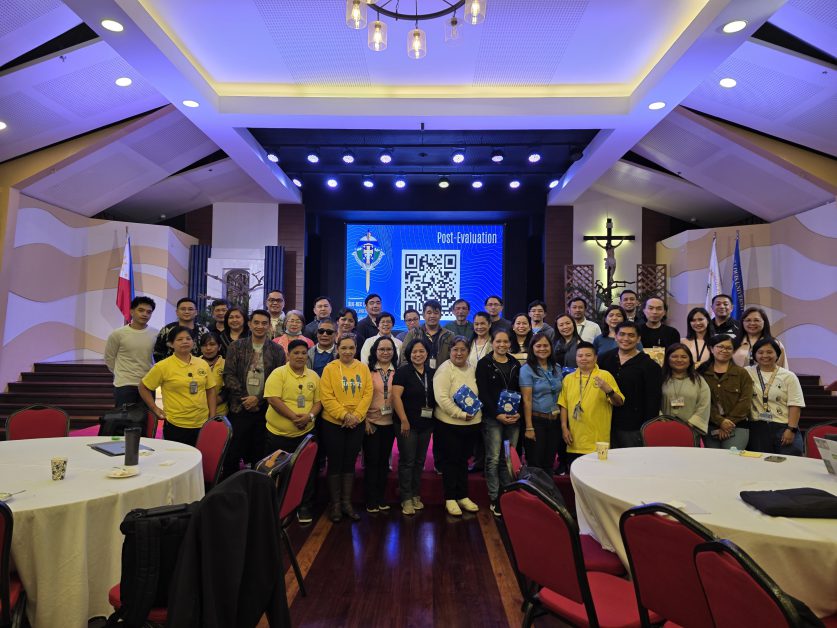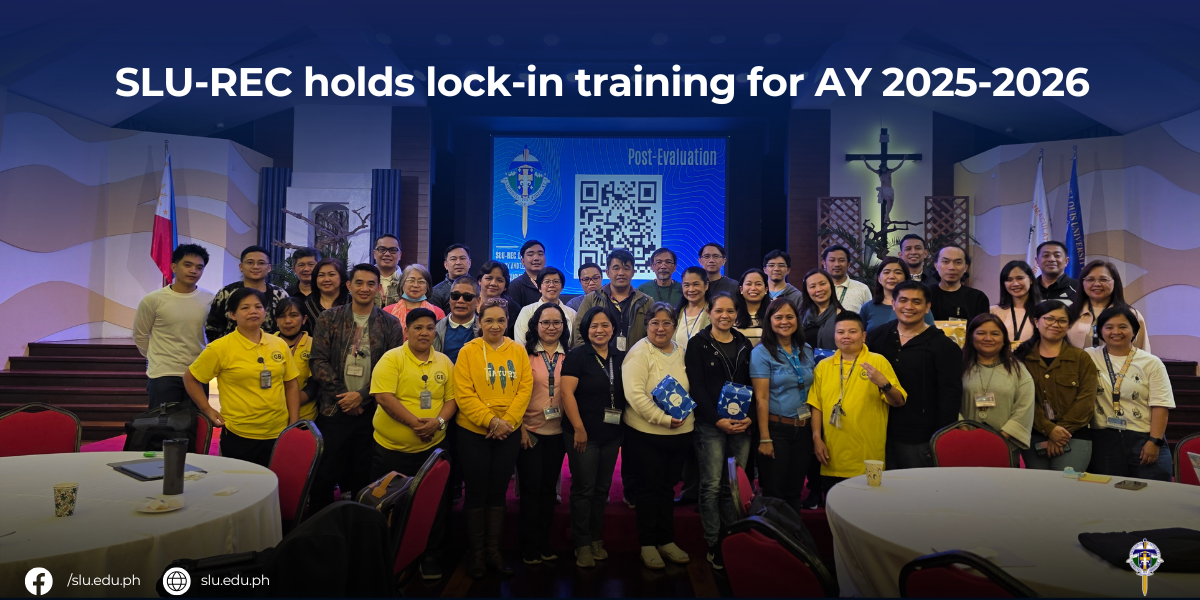With the theme “Lock-in: Legacy and Leadership,” the Saint Louis University Research Ethics Committee (SLU-REC) reaffirmed its role as a steward of ethical scholarship in a two-day training held at Fr. Francis Gevers Hall, Diego Silang Building, SLU Main Campus from 14 to 15 August 2025. The workshop included Standard Operating Procedure (SOP) revisions, mentoring sessions, and introducing a new REC website.
The Director of the Research, Innovation, and Sustainable Extension Center (RISE), Richel Lamadrid, PhD opened the training by stressing the deeper role of ethical review. She said, “Ethical reviewing isn’t just about spotting plagiarism or conflicts of interest. It’s about fairness, humility, and recognizing our responsibility as gatekeepers of scholarly truth.”
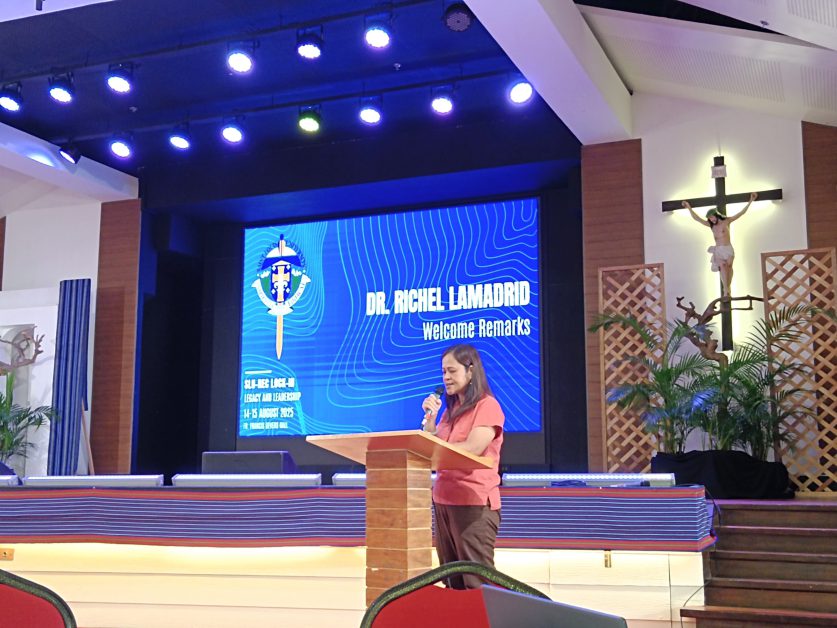
The first day included a team-building session led by REC Vice-Chair Dr. Rufina Abul, followed by the presentation of the manual of procedures by REC Chair, Rainier Moreno-Lacalle, PhD, where he also reminded the members that the SOPs must be C.L.E.A.R. – compliant and comprehensive, logical and lucid, effective and efficient, accountable and accessible, reviewable and relevant. Members engaged in roundtable discussions to review and revise the SOPs.
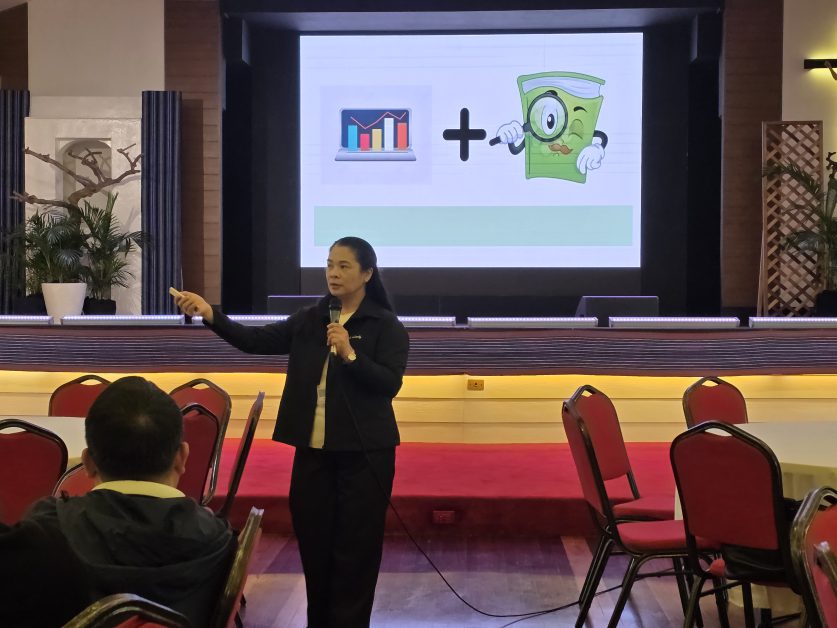
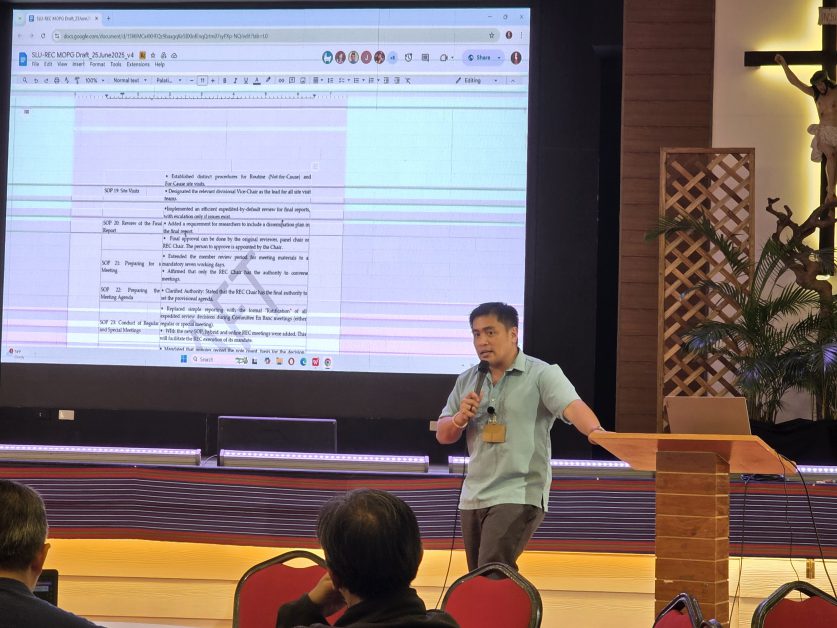
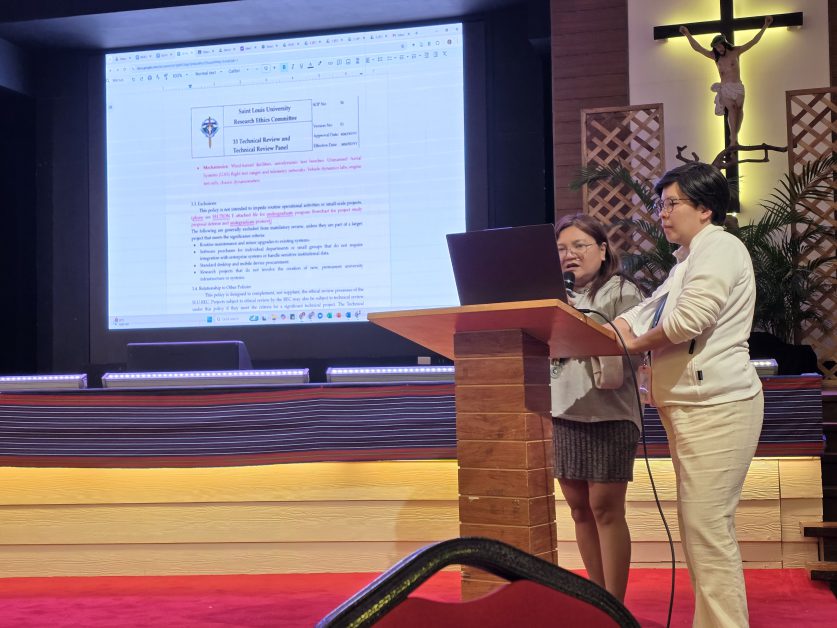
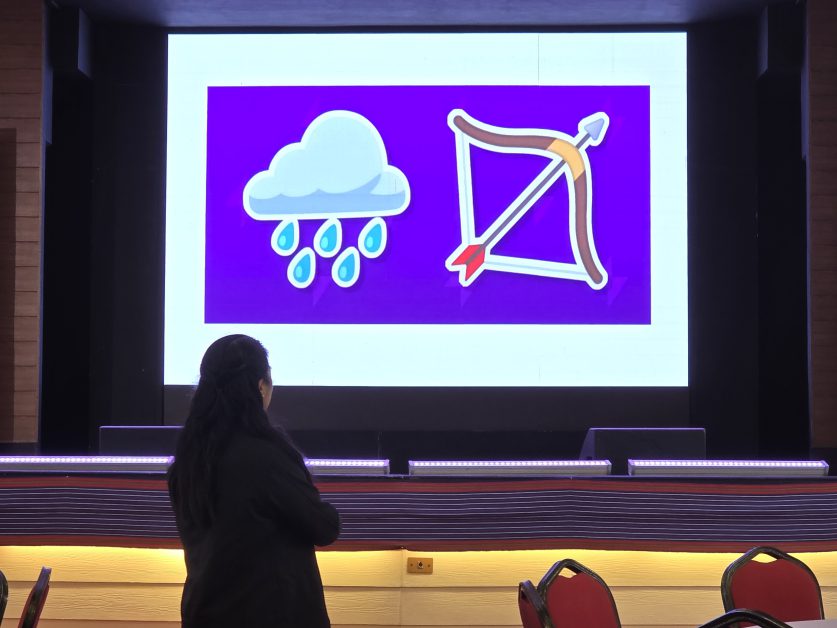
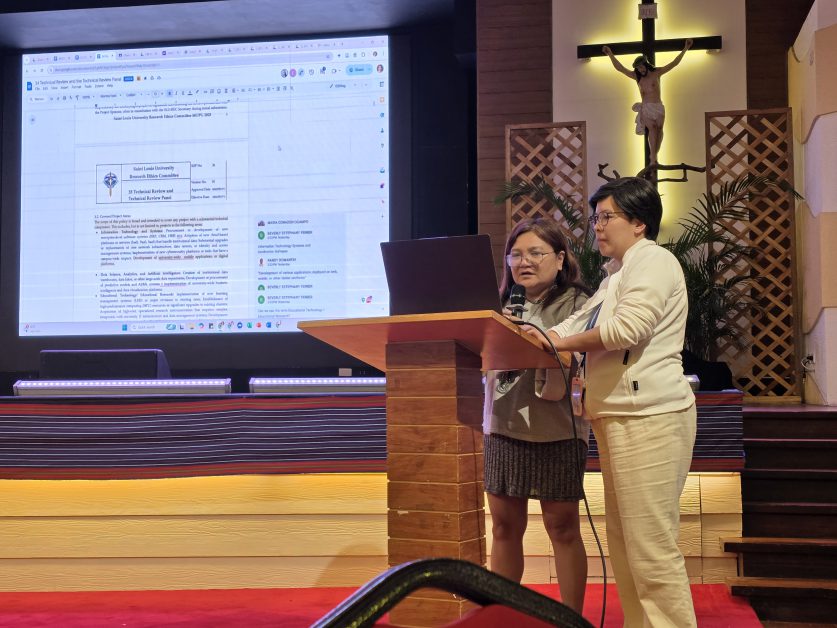
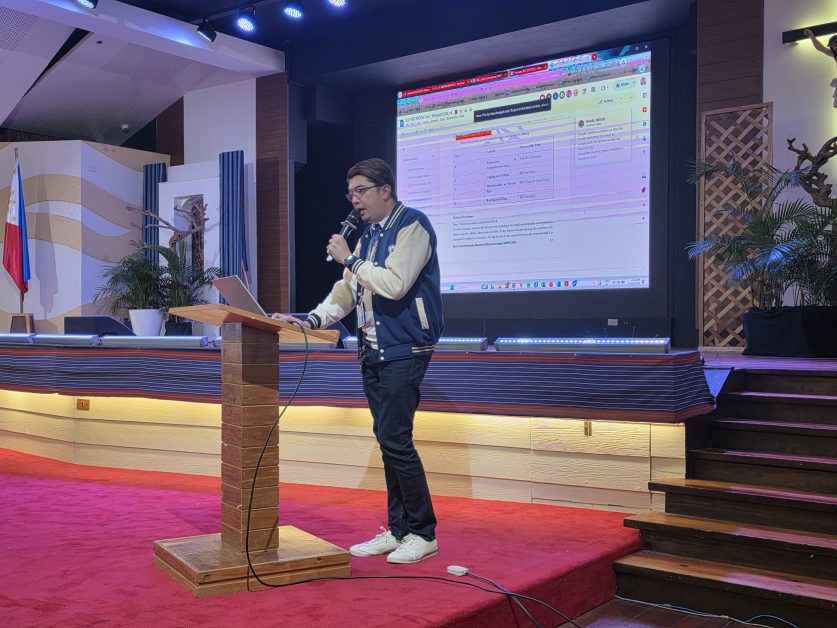
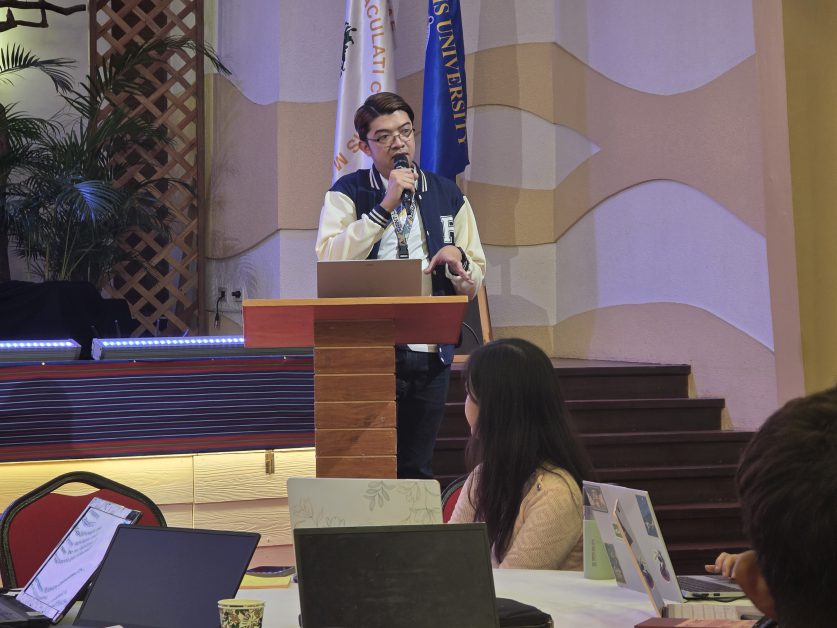
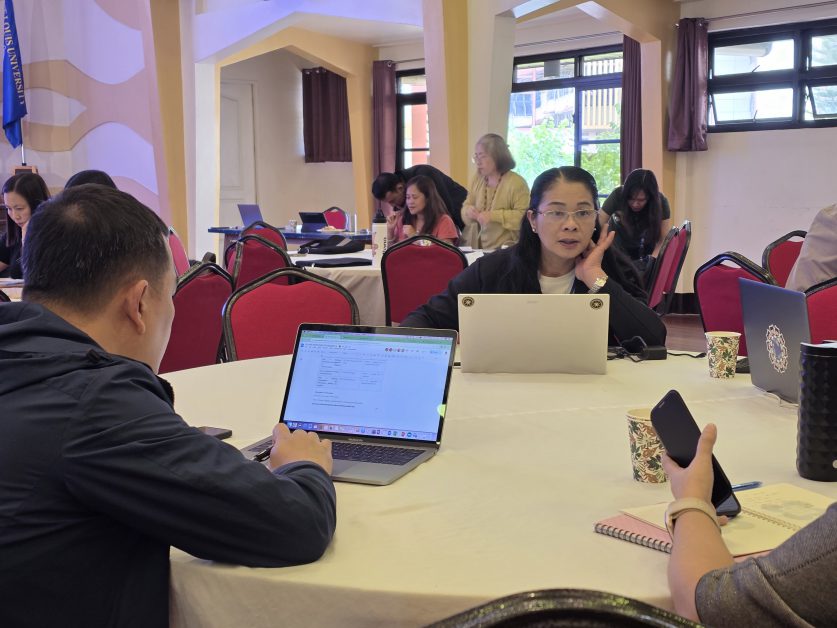
Day two began with a recap led by Prof. Gwendolyn Tadeo, PhD. Members then voted on amendments to SOPs and forms, while Prof. Elizabeth Bautista, PhD shared practical tips on REC functions. Graduating and outgoing members: Prof. Allan Jay C. Espiritu, PhD; Prof. Raymund F. Mamayson, PhD; Prof. Norbert Q. Angalan, PhD; and Dr. Bautista, were honored for their contributions and dedication to the SLU-REC.
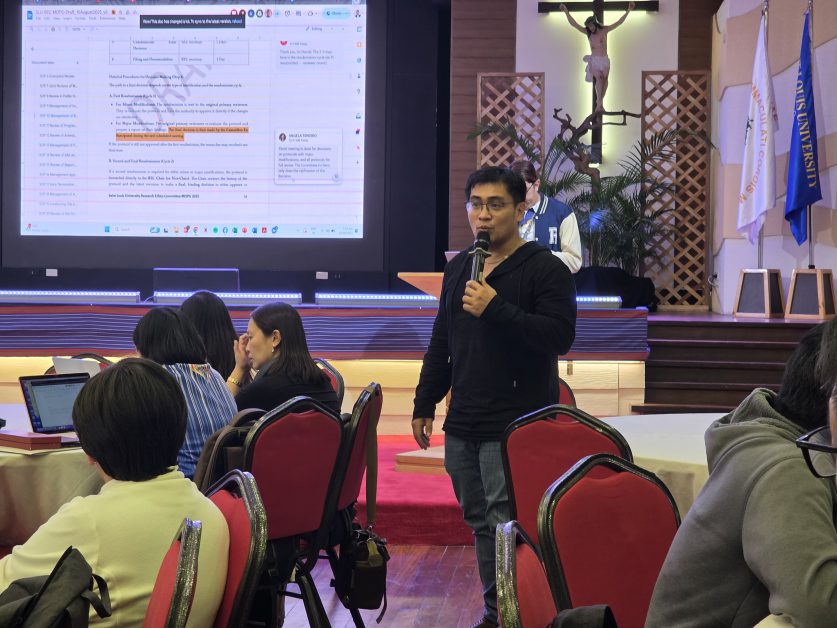
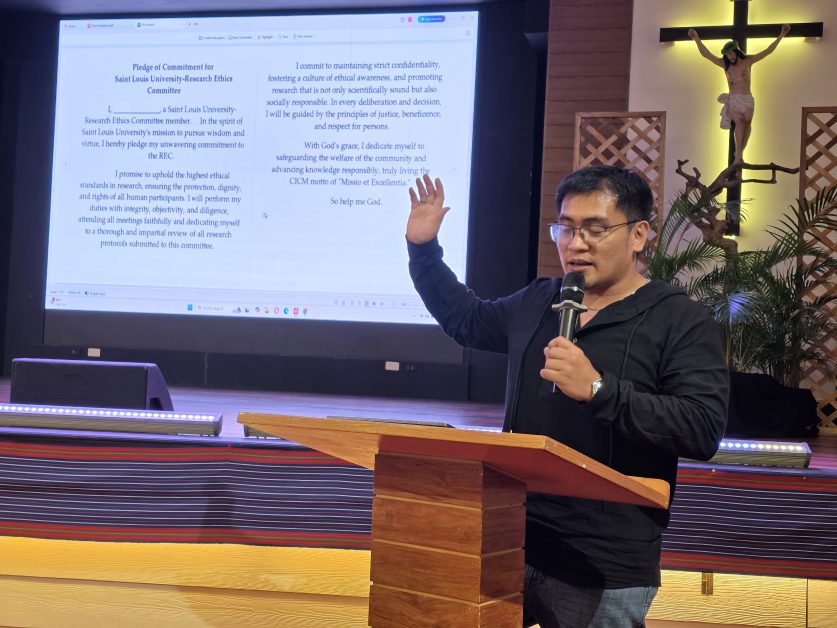
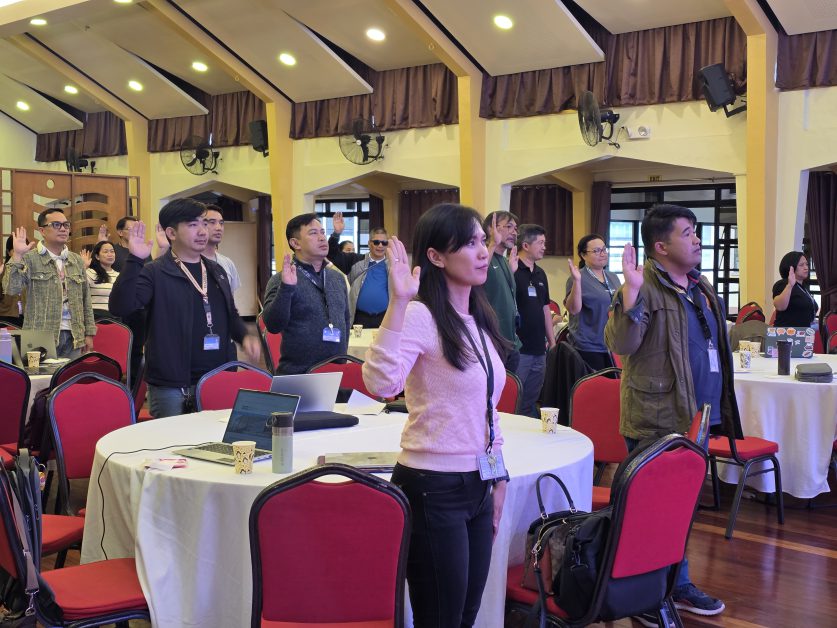
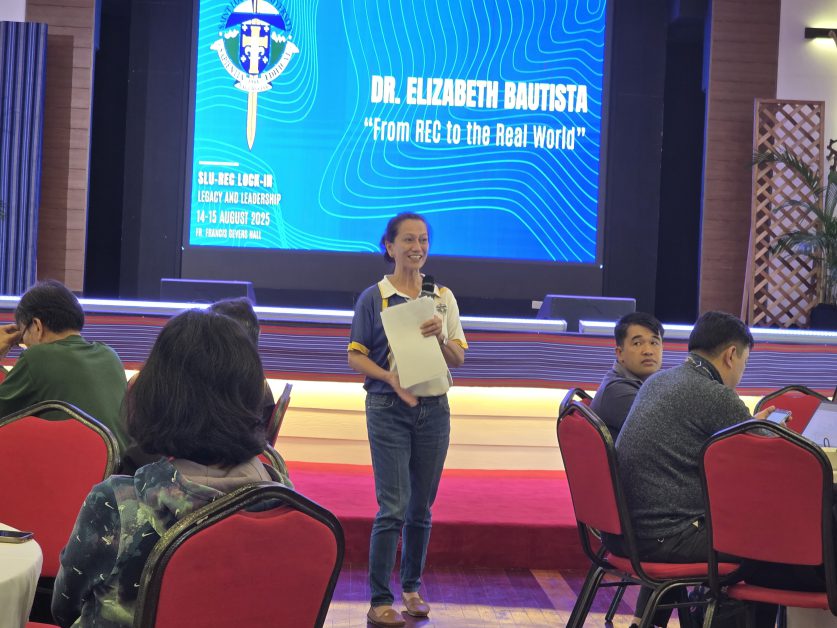
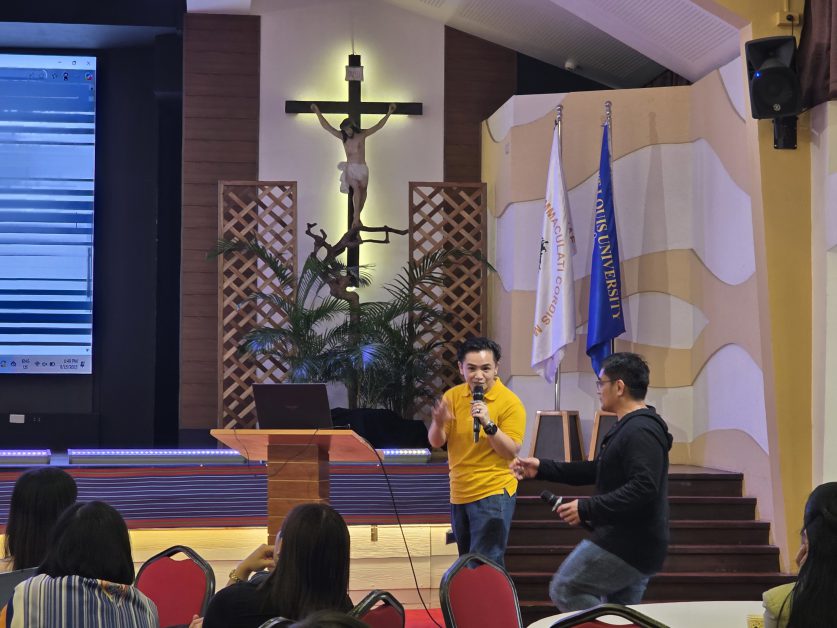
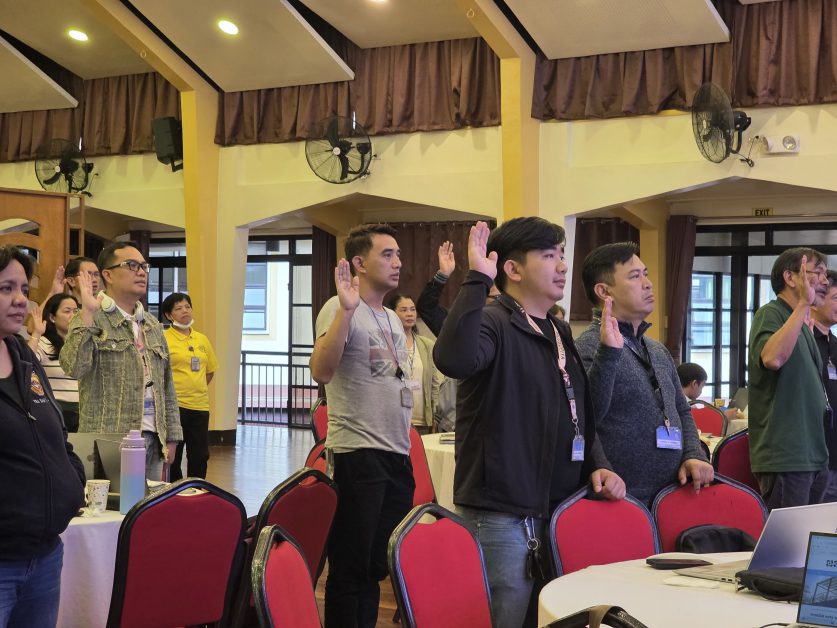
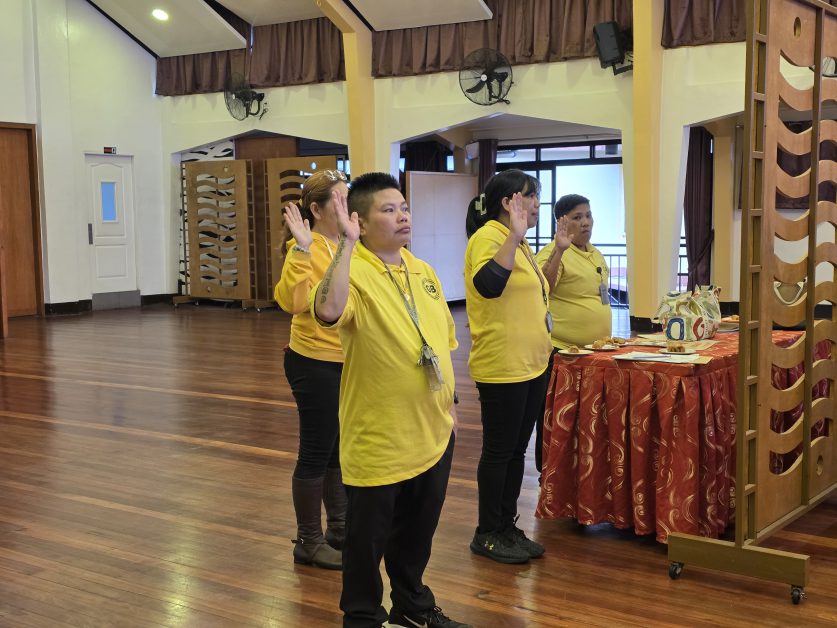
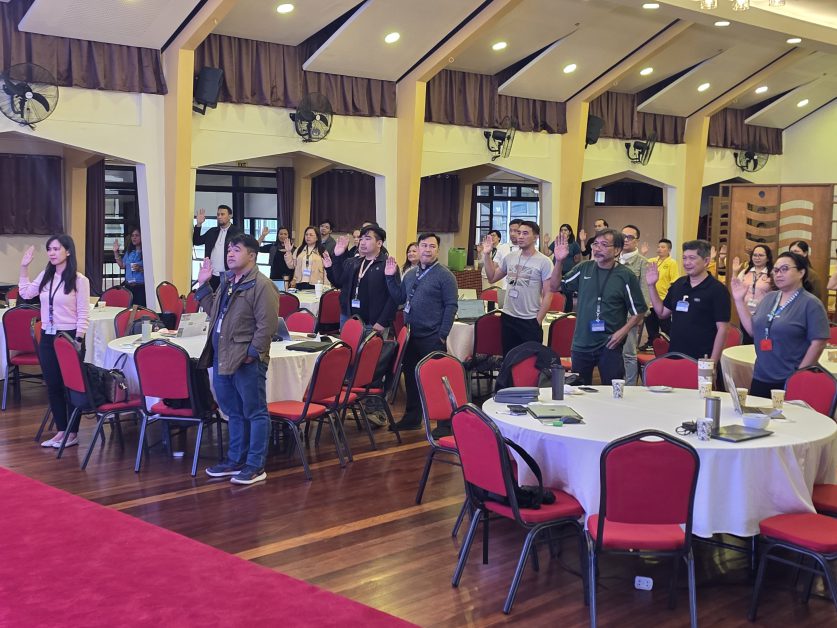
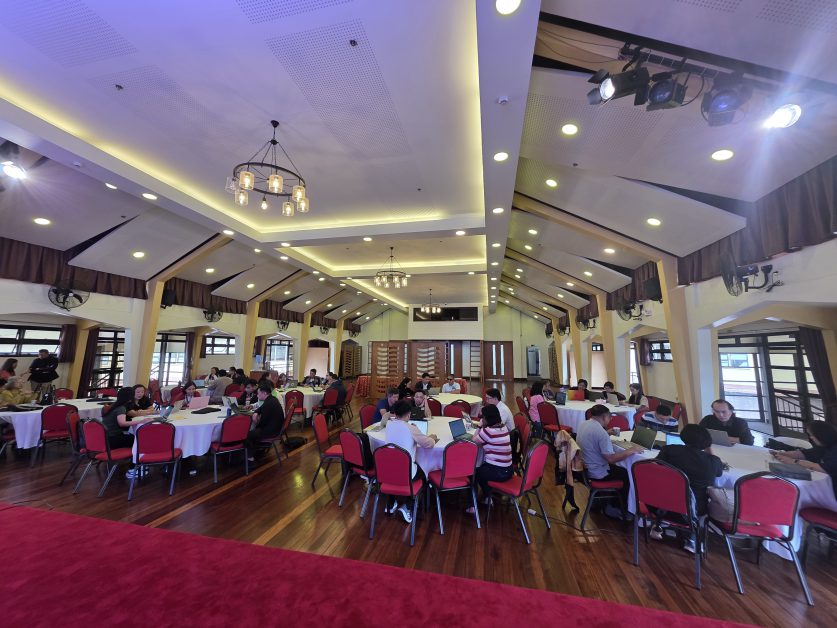
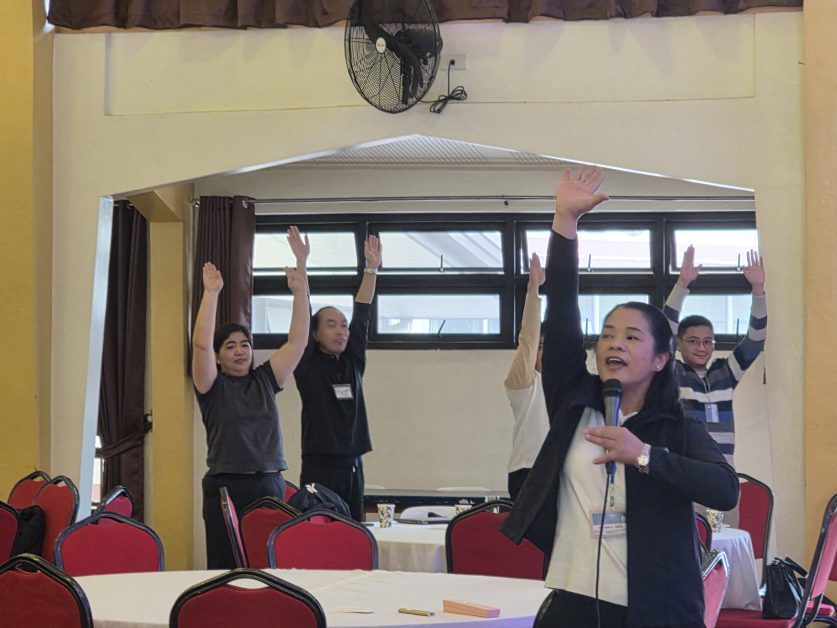
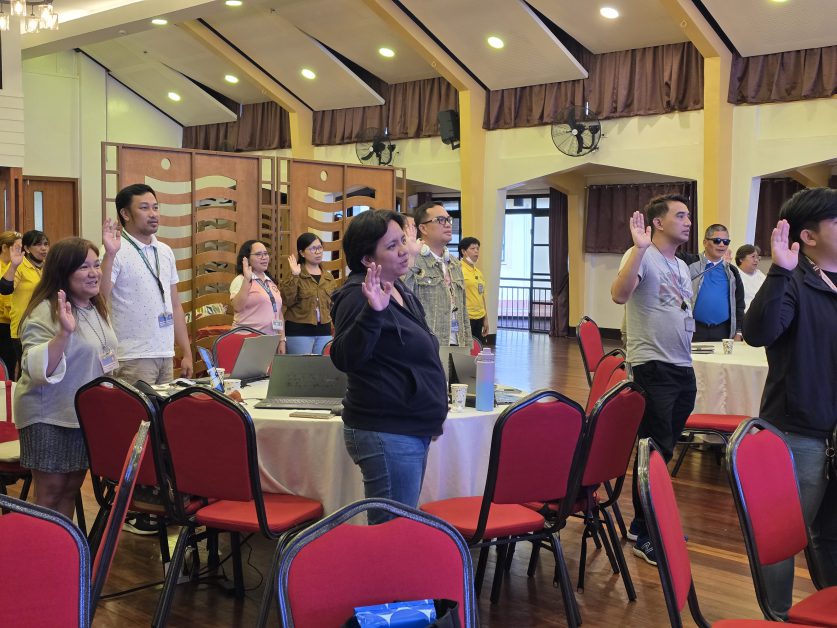
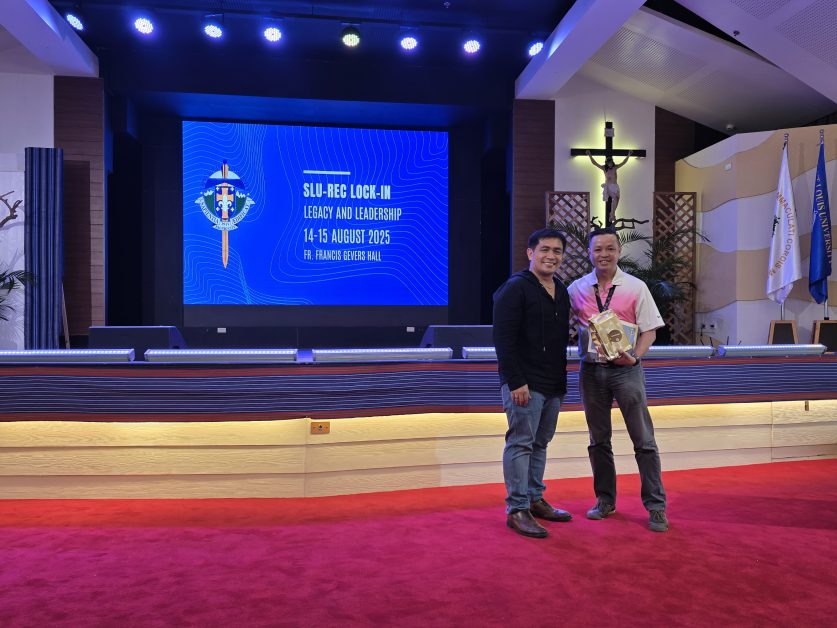
A highlight of the training was the website presentation by Prof. Kasima Mendoza, who explained that the online platform would streamline processes previously handled through email and manual downloads. Beta testing is expected to take about a year. “We are empowering our community, para mapadali nalang yung proseso,” Dr. Moreno-Lacalle said.
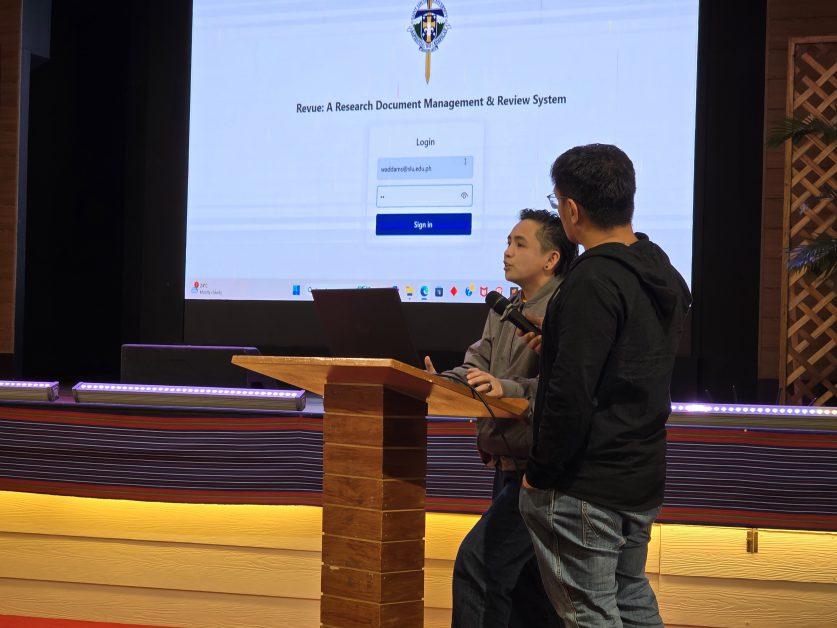
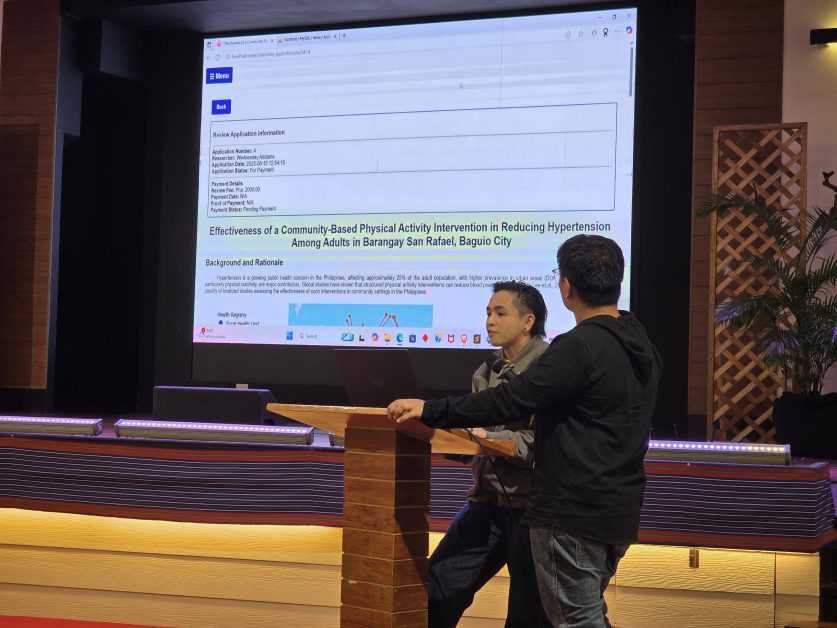
The program concluded with a Pledge of Commitment by the REC members to “uphold the highest ethical standards in research.” (Article and Photos by the SLU Research, Innovation, & Sustainable Extension Center)
The lock-in training is aligned with United Nations Sustainable Development Goals 4 (Quality Education) and 17 (Partnership for the Goals).
